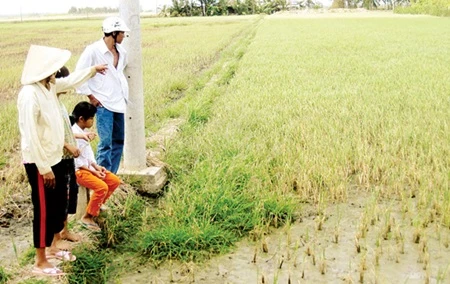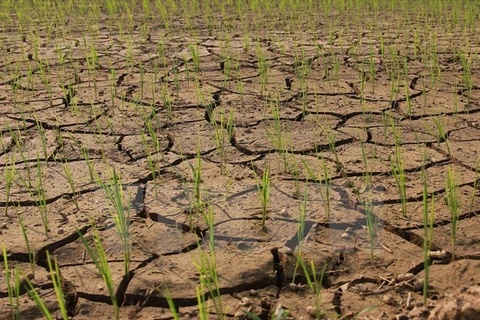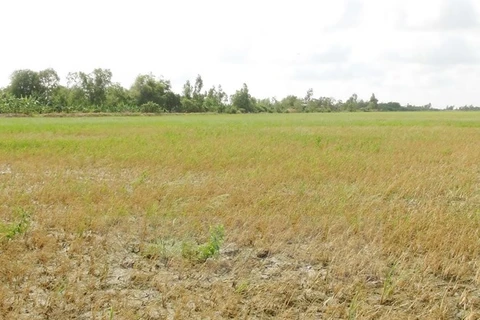Hau Giang (VNA) – Measures to adapt the Mekong Delta’s agricultural activities to the impacts of climate change, particularly drought and saltwater intrusion, lay at the heart of an agricultural extension forum in Vi Thanh city, Hau Giang province, on February 19.
According to the Ministry of Agriculture and Rural Development (MARD)’s Department of Crop Production, an urgent solution is to swiftly restructure the cultivation schedule and prioritise short-term rice varieties tolerant of salinity of up to three parts per thousand.
The department advised local farmers, especially those in coastal areas, not to grow the spring-summer rice crop this year. Meanwhile, the 13 Mekong Delta localities should promptly build a comprehensive system of anti-saltwater dams and culverts.
In the long term, it is necessary to develop drought and saltwater-resistant crops and trees. Local cultivation practices also need to be changed to cope with expected sea level rise.
MARD Deputy Minister Le Quoc Doanh said climate change has been seriously impacting the Mekong Delta in recent years, resulting in drought and saltwater intrusion over hundreds of thousands of hectares of farmland.
So far, in the 2015 – 2016 dry season (from November to April), there has been early and acute saltwater intrusion, which could last until July, and has already substantially affected agricultural production. Notably, a salinity of 12 parts per thousand has been reported in some areas, he added.
Phan Huy Thong, Director of the National Agricultural Extension Centre, said more than 1.5 million ha of rice were planted in the region in the 2015 – 2016 winter-spring crop.
Among 340,000 ha prone to drought and saltwater intrusion, 104,000 ha have been severely impacted, mostly in the provinces of Long An, Tien Giang, Ben Tre, Tra Vinh, Soc Trang, Bac Lieu, Kien Giang and Hau Giang.
A widespread area of fruit trees in Vinh Long, Hau Giang and Soc Trang provinces have also been threatened by the salinity of over three parts per thousand, Thong noted.-VNA

























